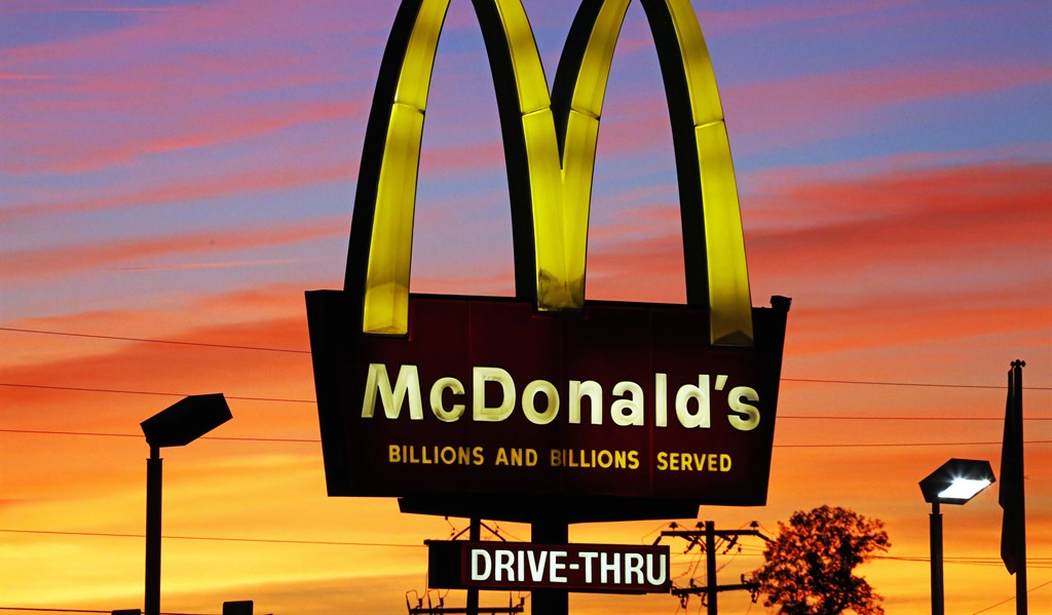Last September, California Gov. Gavin Newsom signed into law the Fast Food Restaurant Industry Act, which raised the minimum wage for most fast-food workers to $20 per hour. Moreover, the new law “establishes a Fast Food Council … to establish an hourly minimum wage for fast food restaurant employees and develop standards, rules, and regulations for the fast food industry.”
Unsurprisingly, this steep hike in the minimum wage for fast-food workers has already produced substantial downstream effects. According to the California Business and Industrial Alliance, there have been around 10,000 fast-food job layoffs in the Golden State since the Fast Food Restaurant Industry Act was signed into law.
The National Owners Association, an advocacy group for thousands of fast-food franchises in California, estimates the new law will cost fast-food restaurants in California about $250,000 annually due to the state-imposed minimum wage increases and other regulations.
Some companies, such as Chipotle and McDonald’s, had already announced price increases before the bill’s effective date of April 1, 2024, while others have leaned heavily into automated kiosks to reduce their labor costs.
According to the California Globe, Chipotle CFO Jack Hartung told investors, “Prices will be raised in California by a mid-to-high single-digit percentage in the state.” McDonald’s CEO Chris Kempczinski expressed similar sentiments, telling investors, “Certainly, there’s going to be some element of that that does need to be worked through with higher pricing.”
A study by the Congressional Budget Office found that increasing the federal minimum wage by incremental degrees to $15 per hour by 2025 would adversely affect employment and household incomes. While the study does find that a minimum wage increase boosts some workers’ wages, it also leads to job loss for many others, with small businesses often bearing the brunt of the lost jobs.
The impact of large minimum wage increases on small businesses is substantial, forcing them to reallocate scarce resources from profit-generating enterprises toward higher labor costs. Often, this results in lower hiring levels, work-hour reductions, layoffs, and increased prices for consumers.
About That Big Mac? Nearly 80 Percent of Americans Now Consider
Fast Food a 'Luxury' Due to Bidenomics
Newsom's CA: Fast Food Employee Starts Work Day Only to Find Out
She's Out of a Job Thanks to New Law
These points are all claims that opponents of minimum wage hikes have cited for years. Despite the warnings, many deep-blue cities and states continue to push for these minimum wage increases despite the documented harms they inflict on the labor force.
According to the U.S. Bureau of Labor Statistics, California maintains a 5.3 percent unemployment rate. With potential economic uncertainty ahead, making any policy decisions that may lead to an increase in this rate should be avoided at all costs.
While unemployment rates have improved since their pandemic lows, the labor force participation rate has not rebounded in the same way. According to the U.S. Bureau of Labor Statistics, there were 8.1 million unfilled jobs on the last business day of April, according to the early June Economic News Release. Bad policies like the Fast Food Restaurant Industry Act will likely lead to fewer opportunities for would-be job seekers as well as preventing teenagers from joining the work force by eliminating many entry-level positions.
If one thing is certain, California’s experiment with unduly high minimum wage rates has served as a good case study, proving what those on the fiscally conservative side knew to be true. Minimum wage hikes are not the solution to helping people rise out of poverty, and they are certainly not going to contribute to making our nation more prosperous.
Attempts to bolster a minimum standard of living and protect wage workers are certainly worthy goals. However, the overall economic effects of excessive minimum wage hikes accomplish neither.
Samantha Fillmore ([email protected]) is the senior state government relations manager at The Heartland Institute.













Join the conversation as a VIP Member